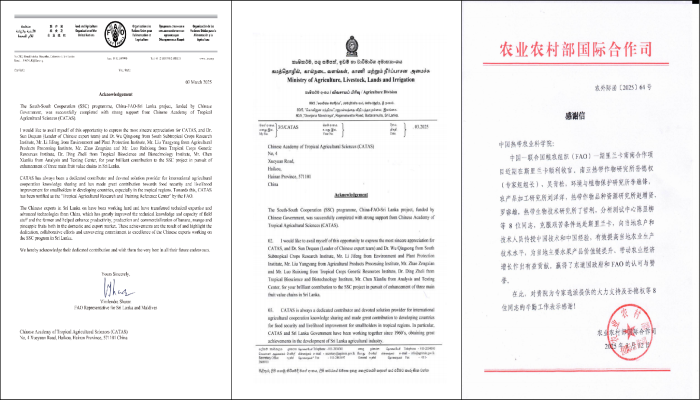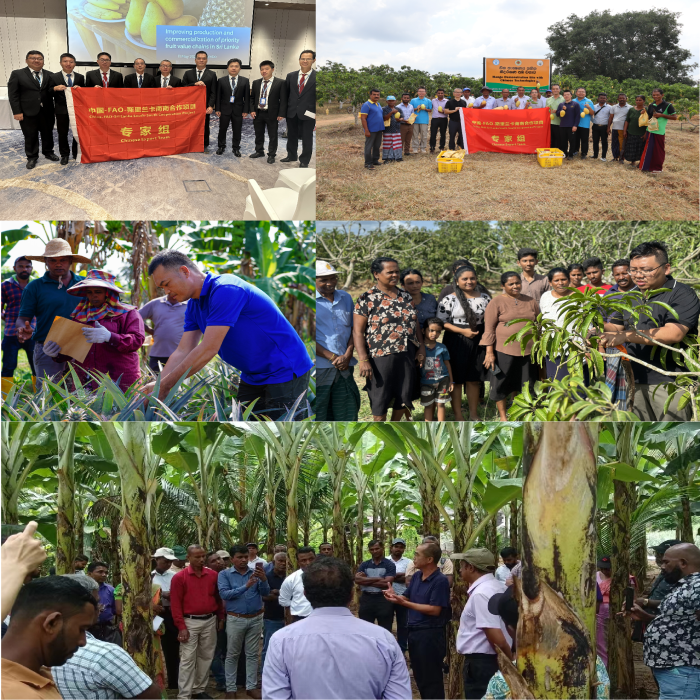As the China-FAO-Sri Lanka South-South Cooperation Project recently concluded with success, the Chinese Academy of Tropical Agricultural Sciences (CATAS) received letters of appreciation from the Ministry of Agriculture, Livestock, Land, and Irrigation of Sri Lanka; the FAO Representation in Sri Lanka and the Maldives; and the Department of International Cooperation of China’s Ministry of Agriculture and Rural Affairs. These letters highly commended CATAS for its expert contributions to the project, which have generated significant economic and social benefits for Sri Lanka. The advanced concepts and practical technologies introduced by CATAS have substantially elevated local fruit value chains, boosted farmers’ yields and incomes, and delivered tangible benefits to communities.
Mr. Vimlendra Sharan, FAO Representative in Sri Lanka and the Maldives, praised CATAS as “a steadfast practitioner of agricultural knowledge-sharing and a provider of innovative solutions under the South-South Cooperation framework.” He emphasized that CATAS has made outstanding contributions to enhancing food security and livelihood quality for smallholder farmers in developing countries, particularly in tropical regions, setting a vital example for global poverty reduction and sustainable agricultural development.

Figure 1 Acknowledgements
From 2023 to 2025, under the China-FAO Phase II South-South Cooperation Trust Fund Agreement, CATAS dispatched 18 experts to implement the “Improving Production and Commercialization of Key Fruit Value Chains in Sri Lanka” project. The team conducted field trainings and established demonstration farms across five regions in Sri Lanka, focusing on enhancing productivity, yield, and value chains for bananas, mangoes, and pineapples. Through the project, 12 advanced technologies were introduced, including banana tissue culture, integrated water and fertilizer management, biological pest control, fruit bagging, and post-harvest treatment. Over 2,200 local researchers, technicians, farmers, students, and enterprise staff received training.

Figure 2 The expert group provides on - site guidance, communication and training in the fields.


